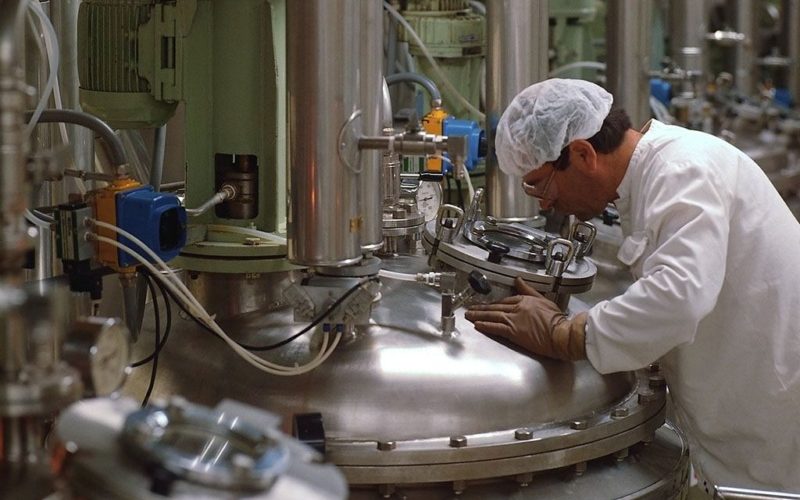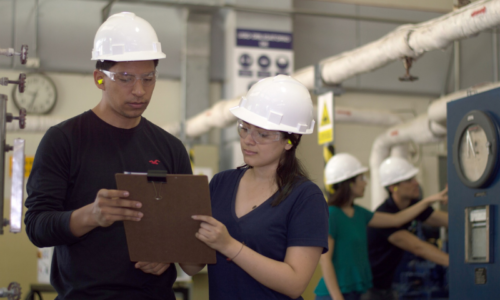What is a Quality Engineer? What does a Quality Engineer do and how can you become one?
What is a Quality Engineer?
A Quality Engineer works within the quality team to ensure the overall quality of a manufactured product and is tasked with creating documentation, devising quality tests and defining the criteria a test result should meet. They play a key role in fixing issues when they arise.
Some Companies might call this role:
- QA Engineer
- QC Engineer
Quality Engineers work within a wider team of professionals with the overall aim of making sure that the final products are safe, reliable and meet customer expectations while keeping the manufacturing process as effective and cost-efficient as possible.
Quality Engineers work with various stakeholders, at every part of the manufacturing process such as;
- Design teams – testing to identify product durability and areas of weakness
- Suppliers – working to ensure raw materials and component parts meet the company’s quality standards
- Manufacturing teams – ensuring that equipment and processes follow predetermined quality standards
- Customers – analyzing issues reported via customer feedback, maintaining records and implementing changes to manufacturing when necessary
Quality Engineers are often tasked with the creation of quality practices and documentation for a given product or facility.
They set out appropriate tests and acceptable result parameters to ensure that quality testing throughout the manufacturing process is effective.
Even at the point of troubleshooting, quality engineering is about more than just identifying problems – it’s about understanding the underlying issues and developing successful fixes, changing practices where necessary to ensure that standards are maintained.
What Does a Quality Engineer Do?
The role of a Quality Engineer can vary greatly between companies.
In larger manufacturing operations, quality engineers can have a specific focus or area of expertise such as Quality Assurance, Quality Control, Six Sigma or even Reliability Engineering.
Quality Assurance
– is process oriented and focuses on eliminating process variation by creating, revising and strictly implementing a set of tightly and precisely defined process/procedures/quality standards that when exactly followed, ensure the final quality of the product. Quality Assurance is preventative by nature.
Quality Assurance is typically reflected on the factory floor through the use of a Quality Management System (QMS). A QMS is a formalized system that documents processes, procedures, and responsibilities for achieving quality policies and objectives. It helps coordinate and direct an organization’s activities to meet customer and regulatory requirements.
ISO 9001:2015 is the most recognised and widely implemented quality management system. Other techniques and methodologies used in Quality Assurance. Total Quality Control and Total Quality Management.
Quality Control
– is product-oriented and focuses on testing a sample of a manufacturing process to make sure that it meets the required design specifications or quality standards. In pharmaceutical manufacturing, the sample testing is done in a laboratory so people who work in QC usually generally (but not always) have a science/laboratory background.
100% sampling or Statistical Process Control (SPC) are some of the more widely used techniques in quality control.
Six Sigma
– is a set of techniques and tools for process improvement developed by Motorola and gained industry-wide acceptance after it was championed by Jack Welch at General Electric. It aims to improve the output quality of a process by identifying and removing the causes of defects and minimizing variability in manufacturing and business processes.
Reliability Engineering
– uses engineering techniques and analysis to improve the dependability or reliability of a product, process, or system in order to:
- Prevent or to reduce the likelihood or frequency of failures
- Identify and correct the causes of failures that do occur despite the efforts to prevent them
- Determine ways of coping with failures that do occur, if their causes have not been corrected
- Apply methods for estimating the reliability of new designs
In smaller operations, Quality Engineers can be tasked with a much wider remit of responsibilities, providing quality engineering support to the whole system.
Whatever the specific set up, Quality Engineers are working to ensure that manufacturing processes and ultimately, final products, meet both internal and external quality standards.
Based within the manufacturing facility, Quality Engineers can work on the manufacturing floor, in an office, or in a lab – depending on the specific tasks they are carrying out at the time.
As previously mentioned, the specific duties of a Quality Engineer will vary from company to company. But as examples, they can include:
- Creation of quality documentation and development of SOPs for their facility and products in line with industry standards
- Proactive review and improvement of systems and processes to ensure the maintenance of standards
- Maintaining accurate quality documentation
- Working closely with manufacturing staff to ensure quality protocols are followed and documentation is correctly maintained and implement any new changes or adaptations based on a quality review
- Inspection and testing of various parts of manufacturing including products, components, processes, and comparing against predefined standards
- Ensuring safety requirements are met at every point in the manufacturing facility
- Analysing problems reported and developing improvements to overcome them
- Oversight of junior quality team members
- Statistical analysis of manufacturing data and creation of reports for senior staff members based on quality documentation
- Working closely with external partners e.g. suppliers, customers, etc
- Continuous improvement in the manufacturing process
Becoming a Quality Engineer
An associate’s degree in quality engineering with relevant experience is enough to secure an entry-level role.
For lots of industries though, you generally need a high level and deep understanding of the manufacturing process to perform the role of a quality engineer. And so for that reason, a Bachelor’s Degree in a lab/science or engineering discipline such a mechanical, industrial, production, manufacturing engineering is the typical minimum requirement for quality engineering. The techniques used in quality engineering are usually added onto a lab/science or engineering qualification or learnt on the job.
There are plenty of exceptions though and it’s not uncommon for smart production operators, toolmakers or technicians (with further education) to progress to the role of a quality engineer.
A master’s degree in quality assurance is desirable for advancement to management positions.
If you already work as a quality engineer and would like to retrain to perform the same or similar role within the pharmaceutical or medical device industry, check out our 30-week Certificate in BioPharmaChem conversion program. The program is delivered online and is university accredited by Technological University Dublin, Ireland
What Skills Do I Need?
The ideal skill set for someone moving into a quality engineering role includes:
- Analytical skills – need to be able to spot problems quickly and find the underlying causes so changes can be made
- Critical thinking – once problems are identified, solutions and improvements must be found. This might involve thinking about a process, procedure or problem in a completely new way.
- Attention to detail – as the people responsible for the creation and implementation of quality systems, as well as the people who notice and report on problems, every detail must be noticed and acted upon when necessary
- Numerical skills – statistical analysis can be a big part of a quality engineering role
- Communications skills – strong written and verbal communication skills are key. Must be able to relay potentially complex ideas to a wide range of audiences – both in personal consultations but also through company SOPs and quality documentation
- Team working skills – working as part of the quality team, and in close coordination with other teams throughout the manufacturing facility (as well as potential for interaction with suppliers and customers) is a key part of quality engineering




